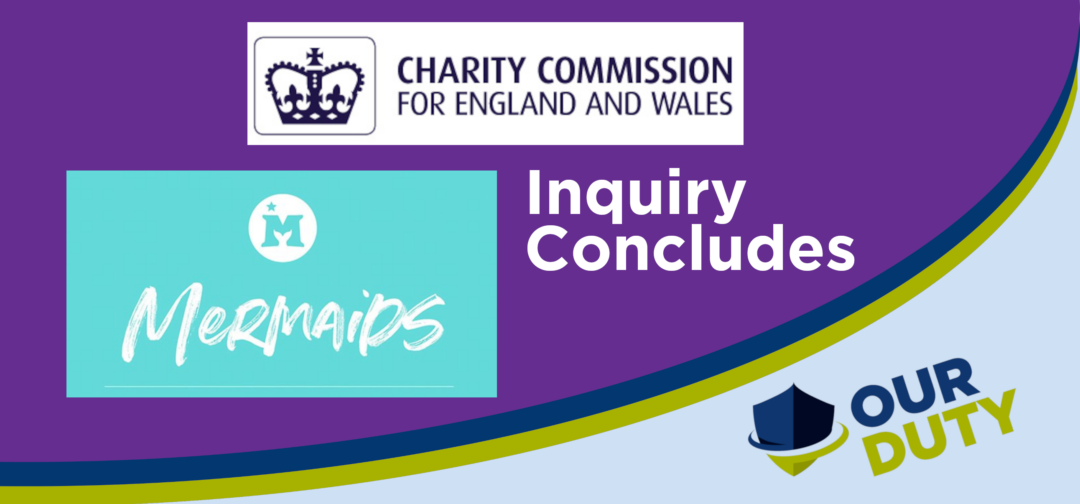Our Duty, as the ethical and objective alternative to Mermaids in the UK, welcomes the findings of the Charity Commission’s inquiry into Mermaids and the concerns raised about its governance and safeguarding failures. For years, we have expressed deep apprehension regarding the ideological influence Mermaids has wielded, particularly in promoting medical transitions for children without adequate consideration of long-term safety or the broader mental health impacts.
The inquiry highlights governance weaknesses within Mermaids, including failures in leadership and decision-making processes. This reflects our ongoing concern that Mermaids, in its haste to affirm children’s claimed “gender identities”, may have compromised the safeguarding of vulnerable young people. Gender related distress is a complex issue, requiring a careful, evidence-based approach to ensure that children are not fast-tracked into irreversible medical interventions, such as puberty blockers and surgeries, without thorough mental health support.
The publication of the Charity Commission’s inquiry into Mermaids has brought long-awaited clarity regarding the failures of this organisation to uphold basic safeguarding principles.
The inquiry revealed significant failings in governance and safeguarding, raising alarming questions about Mermaids’ operations. Of particular note is Mermaids’ provision of chest binders to children without parental consent, an act that clearly contravenes safeguarding norms and poses serious health risks, including breathing difficulties, damage to breast tissue, and mental health distress. This reflects an irresponsible approach to the welfare of children, driven more by ideological zeal than a commitment to their long-term health and well-being.
Moreover, Mermaids’ advocacy for puberty blockers and cross-sex hormones — a deeply controversial medical intervention — continues to be concerning, especially in light of the final Cass Review, which stated:
“the rationale for early puberty suppression remains unclear, with weak evidence regarding the impact on gender dysphoria, mental or psychosocial health. The effect on cognitive and psychosexual development remains unknown.”
Despite this, Mermaids has consistently pushed for easier access to these treatments, claiming that delays in providing them are harmful. The findings of the Cass Review, however, strongly suggest otherwise, emphasising the need for a holistic, evidence-based approach to gender distress, one that prioritises psychosocial support over early medical intervention.
Mermaids’ public response to the Cass Review underscored its ideological commitment to maintaining access to medical interventions for gender-questioning youth. While the review advocated for caution and further research, Mermaids criticised it for potentially imposing “additional barriers to accessing care,” demonstrating their unwavering belief in an affirmative, medicalised pathway. This stance conflicts directly with the findings of the inquiry, which questioned Mermaids’ practices regarding safeguarding and oversight.
Key revelations from the Charity Commission’s inquiry include:
- Failure to safeguard vulnerable children by distributing chest binders without adequate parental involvement.
- Inadequate governance, with leadership failing to ensure proper checks on policies and procedures.
- A concerning focus on advancing ideological goals at the expense of child protection.
The inquiry has exposed that Mermaids’ practices were not only unethical but potentially dangerous, highlighting the risks of allowing ideology to drive child healthcare decisions. Safeguarding must always come first, particularly in the treatment of vulnerable young people experiencing gender-related distress.
Nevertheless, the Commission did not uphold all concerns raised about Mermaids. The inquiry claims that it found no evidence that the charity:
- provided medical advice, which would have been outside its charitable purposes
- made medical referrals for young people without the approval of a parent or carer
- held inappropriate influence or ties to GIDS at the Tavistock and Portman NHS Foundation Trust or to private medical practices
- failed to have appropriate safeguarding policies in place.
This is a surprise given that the evidence provided in a Freedom of Information request could be interpreted as substantiating these allegations.
The inquiry has called upon Mermaids to “have regard to the findings, conclusions and recommendations of the Cass Review.” – we have previously been critical of The Cass Review maintaining that it did not go far enough. Mermaids will, therefore, still be failing young people even if it rejects its prior worldview and embraces The Cass Review.
“In taking a supportive approach to its inquiry, the Charity Commission has given Mermaids a chance to clean up its act. Mermaids is unlikely to move away from its belief in the discredited concept of the “transgender child”. The completion of this inquiry brings a welcome spotlight to shine on Mermaids which cannot survive the inevitable shift away from gender identity ideology. Expectations have been established, and the world is moving rapidly on.”
Spokesperson for Our Duty, Keith Jordan
Our Duty calls for a renewed focus on evidence-based care that prioritises the mental and physical health of children and adolescents over ideological agendas. As we move forward, we will continue to provide parents and families with the support and factual resources they need to safeguard their children from unnecessary medical interventions.
Additional reporting:
The Times
The Times: Trans charity Mermaids gave children chest binders without telling parents

